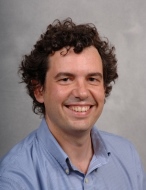
| Speaker | Prof. John P. Walsh (Professor, School of Public Policy, Georgia Institute of Technology) |
|---|---|
| Time | 17:00-19:00, Wednesday, 19th September, 2012 |
| Venue | Research Meeting Room 4B, 4th floor, National Graduate Institute for Policy Studies |
| Sponsor | GRIPS Innovation, Science and Technology Policy Program (GIST) |
| Language | English |
| Fee | Free (Pre-registraion required) |
| Document | Presentation Slides(423K) |
While there is substantial agreement in policy circles that there would be significant economic benefit from universities being more engaged in technology transfer, there is disagreement on how best to accomplish this. In particular, there is a policy debate about whether a professor-privilege or university-ownership model is best for facilitating commercialization of university research. Taking advantage of a natural experiment created by a policy change in Japan that transferred Japan from a professor-privilege to university-ownership regime, we use a set of matched scientist surveys from the US and Japan to estimate a series of difference-in-difference models to test the impact of the policy shift on patenting and licensing of university research projects. We find that before the shift, Japanese academic projects were more likely to be patented, and were somewhat more likely to be licensed. After the policy shift, we find a further increase in patenting (and no decrease in licensing), compared to the control group of US research projects and compared to Japan before the shift. These results suggest that the university-ownership model (sometimes called the Bayh-Dole model) may be more effective than the professor privilege (free agent) model. Further work is needed to develop the underlying incentive and information asymmetry models that would drive these results. However, the policy implications are that countries may benefit from shifting from a professor privilege regime to a university ownership model, as many countries have recently done.